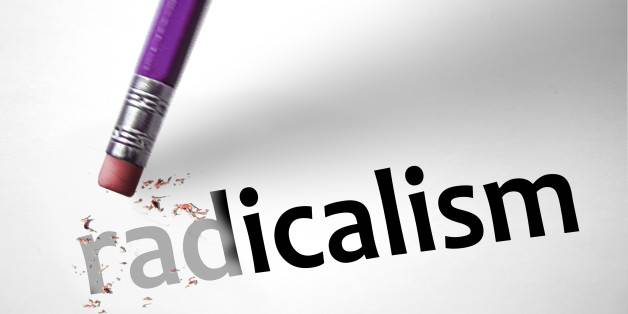Michelle Obama said in her final speech as first lady: “Our glorious diversity is our faiths, our colours, our creeds. That is not a threat to who we are; it makes us who we are.”
The world is having difficulty digesting the reality that there is a large majority of Muslims readily becoming more conscious of their image, which is helping them shape a new world for their social existence by questioning their own kin. However, on the other hand a large majority of thousands and millions of people lead by a pre-dominantly radicalised leadership, are leading nation indivisibly into reactive radicalisation against Muslim populations without realising the differences between the handful of practically “disowned” Muslim terrorists and larger majority of unrecognised Muslim victims and sufferers. Nations like Syria, Pakistan, Turkey, Iraq are in reality fighting within their own national boundaries violent battle against religious radicalism, which is both at the political, ideological and physical grounds.
Is this where the world is moving, to counter religious extremism and religious fanaticism by becoming a fanatic? The result of such a strategy would be counterproductive, resulting in a world full of fanatics, running wild to kill one another. If the world has to judge Muslims by the acts of a few (all Muslims terrorists or Muslim countries are terrorist countries) than it would be equivalent to saying that India is a country of rapists or America is the country of gun violence, ignoring the fact that nations cannot be branded over actions of the few.
When countries fight extremism at the national level, they are deliberate and conscious of dealing it with two contrasting strategies. While there is a counter strategy to curb terrorism through military, on the other hand there is a softer, a diplomatic strategy to counter extremism that is the root-cause of terrorism. It is the demise of rationality the moment states resort to military solutions to terrorism without bandaging the wound from where it emanates. There is global apathy towards widespread genocide in Palestine, Kashmir, Burma, Syria and others and countries that are leading protagonists of human rights and democratic ideals are in political and economic alliance with perpetrators. There is acceptance of only selective truths that media likes to preach to the world and there are less chances of success in counter terrorism military strategies. Political and diplomatic solutions are mandatory and could become a breakthrough to peace.
Proclamations aimed at causing polarisation in the world are the perfect recipe for fanning and feeding extremism. Nation-branding, religious and racial discrimination presented as a solution to counter the prevalent global problem is only the work of a closed-mind, work of someone who is ignorant, incapable of understanding the dynamics of political deliverance. In a nutshell, this is someone unfit for securing an executive position, let alone being a member of an administrative staff.
If you consider that extremism is the solution to extremism, then failure is close. If so called “Muslim” terrorists were in favor of Muslims of the world then they would not place them in a position of suffering, and they would not cause them criticism and victimisation. It is the generic anatomy of the terrorists to produce a situation where the world becomes hostage to their presence, their activities. It is rather interesting and unfortunate, whenever a terrorist attack occurs, Muslims are taken over by the fear of being judged and questioned for their identity, and on the other hand non-Muslims are taken over by fear of Muslims, considered the backers of the attack. A common factor here is indisputably is the phenomenon of fear, which is the objective of the terrorists. According to research conducted by various quarters, following are the average goals of terrorist groups:
1. To spread fear among the population
2. To become relevant in the global politics
3. To garner support from certain community who they proclaim to be fighting for
4. To make headlines by carrying significant actions, attacking monumental places.
It is quite evident that the basic motives of terrorist groups around the world are quite similar; therefore, this homogeneity of purpose should be utilised as a platform for unity among the victims of terrorist in order to form a counter-terrorism strategy.
Numerous studies relating to terrorism have suggested that there are direct psychological effects of terrorism on the individuals from all around the world. It is unfortunate that Donald Trump’s new immigration policy based on global polarisation and radicalisation would do little to improve the situation. Donald Trump’s aggressive and rigid policy for countering terrorism is already producing negative impacts, causing him criticism and protests inside United States and globally. On the contrary, to take a lead from where the Obama presidency came to an end, he could initiate a more globally inclusive policy as far as countering terrorism in concerned. The following could possibly be few steps in this regard:
1) Forming a global alliance for countering terrorism, including local Muslim population alongside the leadership.
2) One of the few Obama talents was his communication skills, Mr. Trump would have been appreciated more than the criticism coming his way for being vocal about his globally inclusive policy.
3) Taking advantage of the Muslim population growing weary of their racial branding by bringing them in to the fold of a global counter-terrorism policy
4) Focus on countering terrorism rather countering cultural beliefs. USA growing more accepting towards to non western cultures, which would help USA changing the perception of the country in larger Muslim population.
This is rather naïve to expect peace by holding “no entry” signs in your hands. Logic dies indeed, from where Trump leads.
Muslims are taken over by the fear of being judged and questioned for their identity, and on the other hand non-Muslims are taken over by fear of Muslims, considered the backers of the attack.






